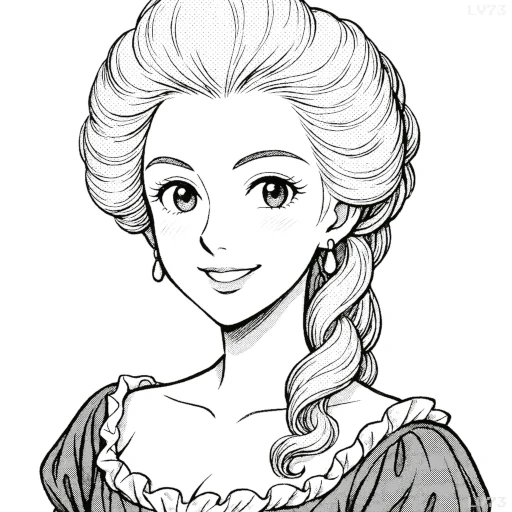“The king is full of kindnesses toward me, and I love him tenderly. But it is pitiable to see his weakness for Madame du Barri, who is the silliest and most impertinent creature that it is possible to conceive.”

- November 2, 1755 – October 16, 1793
- From the Duchy of Austria, Holy Roman Empire
- Queen
table of contents
Quote
“The king is full of kindnesses toward me, and I love him tenderly. But it is pitiable to see his weakness for Madame du Barri, who is the silliest and most impertinent creature that it is possible to conceive.”
Explanation
This quote highlights Marie Antoinette’s personal frustration with the relationship between Louis XV and Madame du Barry, a woman who had become the king’s favorite towards the end of his reign. Marie Antoinette’s reference to the king’s “weakness” for Madame du Barry suggests a deep sense of jealousy and disapproval. Despite the affection Louis XV showed toward Marie Antoinette, his favoritism toward Madame du Barry was an ongoing source of tension, as she was often seen as an outsider and someone who had little regard for the traditional decorum expected at court. Marie Antoinette’s judgment of Madame du Barry as the “silliest and most impertinent creature” underscores her disdain for the woman’s influence, possibly because of the political ramifications of such a relationship, which reflected poorly on the monarchy’s image.
This statement reveals not only the personal dynamics between the Queen and the King but also the larger political tensions within the royal court. Madame du Barry’s rise in favor came at a time when the French court was already fraught with political discontent, and her presence symbolized the corruption and indulgence that many believed characterized Louis XV’s reign. Marie Antoinette, having already suffered public scrutiny and criticism as a foreign queen, might have seen the king’s attachment to Madame du Barry as both a personal betrayal and a reflection of the monarchy’s deeper political problems.
In modern terms, this quote can be seen as a reflection on relationships of power and favoritism within both personal and professional settings. It touches on the challenges that arise when a leader shows favoritism toward an individual who is seen as unworthy or detrimental by others, which can create tension and resentment among those who feel overlooked or betrayed. Such dynamics can lead to feelings of insecurity and mistrust, whether in royal courts or contemporary institutions, highlighting the universal tension between power, favoritism, and loyalty.
Would you like to share your impressions or related stories about this quote in the comments section?

